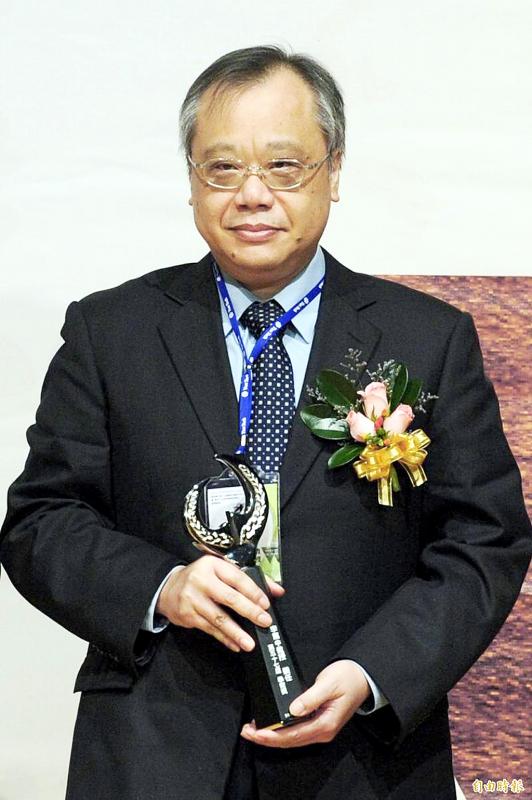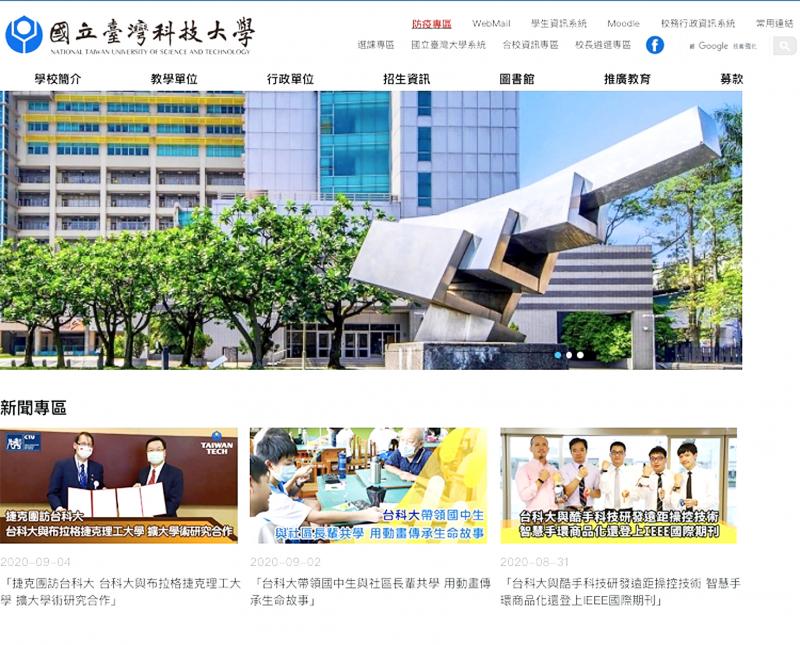A candidate for the post of National Taiwan University of Science and Technology (NTUST) president yesterday dropped out of the race following a report questioning his links to Chinese academia and government programs.
Lee Duu-jong (李篤中), a professor at National Taiwan University’s (NTU) chemical engineering department, was a member of China’s Changjiang Scholars’ Program in 2006 and was on the list of its Thousand Talents Program in 2017, a report by Chinese-language Mirror Media magazine said yesterday.
The article said that Lee is suspected of having held a part-time job at the Harbin Institute of Technology in China and was the recipient of as much as 6.5 million yuan (US$958,000) in Chinese research grants.

Photo: Taipei Times file photo
Lee, who had previously served as NTUST vice president, issued a statement denying that he had held a part-time position in China.
The NTUST had looked into the matter and confirmed that he was not listed under the Thousand Talents’ Program, he said, adding that all his research collaborations in China and across the world were in full compliance with Ministry of Education regulations.
NTUST professors urged the ministry to clarify regulations to prevent a repeat of the NTU debacle.

Photo: Rachel Lin, Taipei Times
From 2018 to January last year, the NTU’s presidential seat was left vacant as the ministry refused to recognize the validity of the election of Kuan Chung-ming (管中閔), citing a conflict of interest and allegations that he had held positions at Chinese universities.
Despite the controversy, Kuan took office as NTU president in January last year.
The ministry yesterday reiterated an Executive Yuan statement in 2018 that employees at universities, as well as public and private research facilities, cannot take part in projects funded by the Chinese government, including the Thousand Talents Program and its subsequent Ten Thousand Talents Program.
This is a standing policy that has been communicated to universities nationwide multiple times, the ministry said in a statement.
It urged the NTUST presidential review committee to ask Lee to provide details to address these issues.
It also asked NTU, Lee’s current employer, to convene a committee to determine whether he had contravened regulations on taking a post at a Chinese university.
The ministry’s statement said that academics who have not obtained approval before taking a position at a Chinese university would be in contravention of the Act Governing Relations Between the People of the Taiwan Area and the Mainland Area (台灣地區與大陸地區人民關係條例), or Article 34 of the Act Governing the Appointment of Educators (教育人員任用條例).
A Central News Agency report said that the ministry declined to respond to its questions on whether it has a list of Taiwanese academics on the Changjiang Scholars’ Program or the Thousand Talents Program.
The ministry also remained silent on whether there was precedent to college presidents retaining a part-time job in China and what ministry processes were involved in making such identification.
China’s Taiwan Affairs Office spokesperson Zhu Fonglian (朱鳳蓮) said that as of November last year, there were 72 academics listed on the Thousand Talents Program, and there were 1,600 Taiwanese teachers employed in Chinese schools.
The Thousand Talents Program was an initiative launched by Beijing in 2008 to attract top academics and scientists from abroad. It has recently attracted controversy amid reports that it encourages intellectual property theft by program participants to boost development of emerging technologies and industries in China.
Additional reporting by CNA

US President Donald Trump yesterday announced sweeping "reciprocal tariffs" on US trading partners, including a 32 percent tax on goods from Taiwan that is set to take effect on Wednesday. At a Rose Garden event, Trump declared a 10 percent baseline tax on imports from all countries, with the White House saying it would take effect on Saturday. Countries with larger trade surpluses with the US would face higher duties beginning on Wednesday, including Taiwan (32 percent), China (34 percent), Japan (24 percent), South Korea (25 percent), Vietnam (46 percent) and Thailand (36 percent). Canada and Mexico, the two largest US trading

China's military today said it began joint army, navy and rocket force exercises around Taiwan to "serve as a stern warning and powerful deterrent against Taiwanese independence," calling President William Lai (賴清德) a "parasite." The exercises come after Lai called Beijing a "foreign hostile force" last month. More than 10 Chinese military ships approached close to Taiwan's 24 nautical mile (44.4km) contiguous zone this morning and Taiwan sent its own warships to respond, two senior Taiwanese officials said. Taiwan has not yet detected any live fire by the Chinese military so far, one of the officials said. The drills took place after US Secretary

CHIP EXCEPTION: An official said that an exception for Taiwanese semiconductors would have a limited effect, as most are packaged in third nations before being sold The Executive Yuan yesterday decried US President Donald Trump’s 32 percent tariff on Taiwanese goods announced hours earlier as “unfair,” saying it would lodge a representation with Washington. The Cabinet in a statement described the pledged US tariffs, expected to take effect on Wednesday next week, as “deeply unreasonable” and “highly regrettable.” Cabinet spokeswoman Michelle Lee (李慧芝) said that the government would “lodge a solemn representation” with the US Trade Representative and continue negotiating with Washington to “ensure the interests of our nation and industries.” Trump at a news conference in Washington on Wednesday announced a 10 percent baseline tariff on most goods

THUGGISH BEHAVIOR: Encouraging people to report independence supporters is another intimidation tactic that threatens cross-strait peace, the state department said China setting up an online system for reporting “Taiwanese independence” advocates is an “irresponsible and reprehensible” act, a US government spokesperson said on Friday. “China’s call for private individuals to report on alleged ‘persecution or suppression’ by supposed ‘Taiwan independence henchmen and accomplices’ is irresponsible and reprehensible,” an unnamed US Department of State spokesperson told the Central News Agency in an e-mail. The move is part of Beijing’s “intimidation campaign” against Taiwan and its supporters, and is “threatening free speech around the world, destabilizing the Indo-Pacific region, and deliberately eroding the cross-strait status quo,” the spokesperson said. The Chinese Communist Party’s “threats